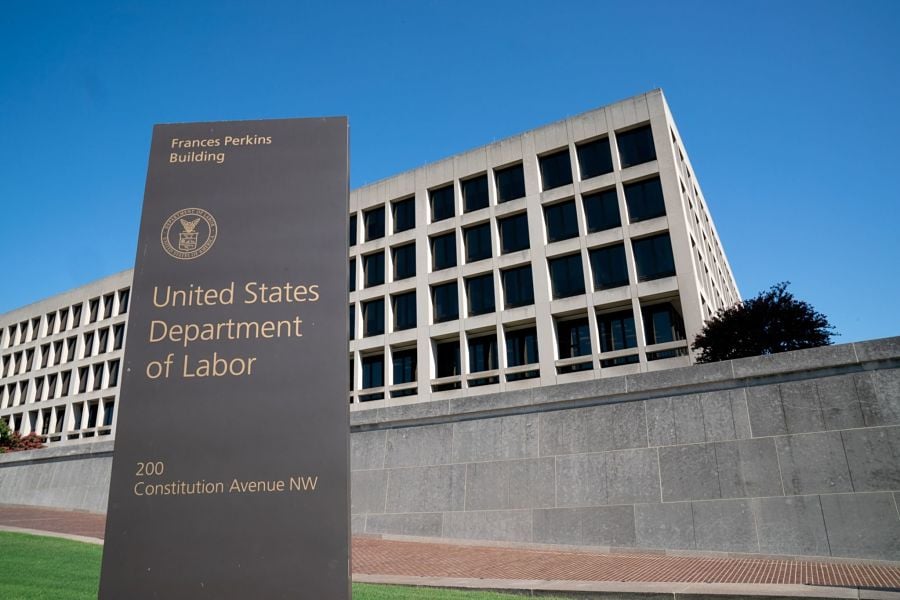

For decades, independent financial advisers — not to mention their clients and employees — have lived with a cloud of ambiguity over their heads due to a lack of clear, federal-level protections for their independent contractor status.
Now, by withdrawing a final rule designed to address this problem, the Department of Labor has only added to the confusion.
Independent contractor status is a fundamental part of the successful business model that contributes to the invaluable service that independent advisers provide to Main Street American investors. The status gives them latitude to work with a variety of clients, not just those who meet minimum asset requirements set by a monolithic employee-based firm dictating their activities and quotas.
It allows them to engage their entrepreneurial drive to build businesses, strengthen their communities, create jobs and serve clients in the ways that work best for the client.
Put simply, the independent contractor approach is a model that works, both for members of our industry and for vast numbers of American workers and investors.
Unfortunately, the legal framework protecting independent contractor status for professionals who proactively choose independence has become complex and confusing. The courts have varied in their application of the Fair Labor Standards Act’s multifactor test, resulting in a lack of clarity for advisers and other contractors.
In real terms, the application of this test has been determined through case law, leaving advisers vulnerable to recurring threats to their independent contractor status, especially from various state-level legislative proposals.
During the Trump Administration, the DOL finally moved to bring much-needed clarity. In early January of this year, the department finalized a rule that would — at long last — have clarified requirements for independent contractor status under the FLSA using a common-sense "economic reality" test.
Under the rule, a worker who, as a matter of economic reality, is in business for him or herself — rather than being economically dependent on an employer — would have been considered an independent contractor.
The rule offered a sign of hope for advisers that they might finally be able to operate their businesses and serve their clients without the fear that a core element of their business model — one that is crucial to their business’ economic viability — could someday be pulled out from under them.
This hopeful outlook, however, was short-lived.
In March, the Biden Administration DOL suddenly announced that it would delay implementation of the final rule. Then, on May 6 — the day before the measure was set to be implemented — the Department withdrew the rule altogether.
Like all business owners, our members deserve a clear and consistent legal and regulatory framework to run their practices and plan for the future. The DOL’s precipitous delay and subsequent withdrawal of its final independent contractor rule removed key protections that would have provided that clarity.
With this in mind, on May 14, FSI joined the Associated Builders and Contractors Inc., the Associated Builders and Contractors of Southeast Texas, and the Coalition for Workforce Innovation in filing an amended complaint against the DOL in the U.S. District Court for the Eastern District of Texas, challenging the delay and withdrawal of the final independent contractor rule.
As we explained in our complaint, the department has not only taken a misguided and harmful policy position on this issue, but it has failed to meet well-established legal and procedural requirements under the Administrative Procedure Act for such a drastic move. By neglecting to provide a meaningful period for comment before delaying the final rule’s implementation — and by failing to offer a substantive justification for the delay in the first place — the DOL undermined the transparency of its review process, hindered vital debate and, we believe, violated the APA.
The problems with the DOL’s action do not stop there. As we made clear to the department in an earlier comment letter, the DOL’s economic analysis regarding its repeal of the final rule contained numerous erroneous statements and assumptions, and it failed to consider important aspects of the problem itself.
As with our successful lawsuit against the DOL in 2016 — which resulted in the department’s Obama-era fiduciary rule being vacated nationwide — legal action is not a course we embark on lightly. Protecting independent advisers’ independent contractor status at the federal level, however, is a cause that is too important not to fight for.
Dale E. Brown is president and CEO of the Financial Services Institute.

Relationships are key to our business but advisors are often slow to engage in specific activities designed to foster them.

Whichever path you go down, act now while you're still in control.

Pro-bitcoin professionals, however, say the cryptocurrency has ushered in change.

“LPL has evolved significantly over the last decade and still wants to scale up,” says one industry executive.

Survey findings from the Nationwide Retirement Institute offers pearls of planning wisdom from 60- to 65-year-olds, as well as insights into concerns.
Streamline your outreach with Aidentified's AI-driven solutions
This season’s market volatility: Positioning for rate relief, income growth and the AI rebound
